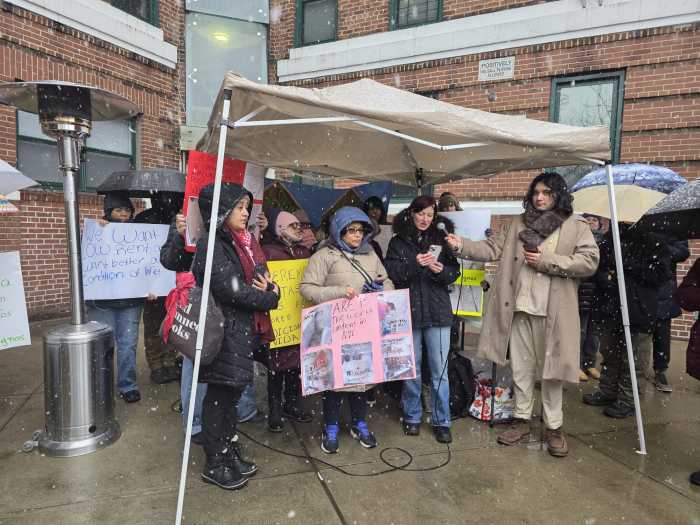
Aridia Espinal (Photo: New York Assembly)
Sept. 6, 2018 By Tara Law
Aridia “Ari” Espinal, 30, has only been the District 39 assembly member since February, but she is already a familiar face in her neighborhood.
When Espinal walks around the district— which encompasses Jackson Heights, Corona and Elmhurst— she needs to leave ample time to speak with people who recognize her, she said.
“If I have to be somewhere at noon, I have to leave my campaign office an hour before, because someone’s going to stop me in the streets,” Espinal said.
Espinal said that so many people are friendly with her because she was born and raised in the district, and has volunteered in the community since she was 13.
Last winter, Espinal took the Assembly seat in a special election after Francisco Moya stepped down to join the City Council.
Espinal was appointed by the Queens Democratic party as the candidate to run in the special election, and no primary was held. The Queens GOP chose not to run a candidate.
On Sept. 13, Espinal will be challenged in a Democratic Primary. She faces Yonel Letellier Sosa and Catalina Cruz.
However, Espinal said, she feels confident that she will receive a mandate in the primary next week because she is such a well-known and dedicated member of the community.
In an interview in late August, Espinal noted that neither of her opponents were born in the neighborhood.
“One of the biggest differences is— I’m from here,” Espinal said. “I was born and raised in this neighborhood and I love what I am doing.”
According to Espinal, her deep familiarity with issues that impact the community— such as an underfunded school system, an inefficient MTA and expensive housing— will ultimately carry her to victory.
Espinal was born to Dominican immigrants in Corona, and began her work in the community as an elementary school student at St. Leo’s Catholic Academy in Corona.
She volunteered at her school and with the Corona Lion’s Club, where she helped to organize community events, clean graffiti, and worked to improve the quality of life in the community.
Espinal said that she carried this hands-on ethos into her adulthood. After graduating from college, she joined Moya’s office and eventually became his director of constituent services.
Now as an Assembly Member, Espinal continues to emphasize the community-facing component of her job.
Espinal said that she disperses “mobile offices” out on the streets of her district, where constituents can meet with her aids and learn more about resources available through the state. On the weekends, she travels throughout the district herself to speak with the community.
“It’s something that I instilled in my staff— that we need to do this. Because, you know, people need to know that we’re there for them,” Espinal said.
Espinal said that her closeness to the community has enabled her to see issues more clearly than candidates with less experience in the district.
For instance, she faults politicians who have campaigned on reforming the MTA for neglecting a discussion about the bus lines. According to Espinal, many people require reliable bus lines just to reach the subway.
“If you live on South Cliff by Otis Avenue… 15 blocks from the 7 line, how are you going to get to the 7 line to get to work? You have to take a bus,” said Espinal.
Espinal said that the city should begin to install ticket vending machines along the bus route, because bus riders currently need to visit subway stations to refill their MetroCards.
Espinal also said that discussions about schools have become overly fixated on funding Pre-K for All, whereas there has been little debate about investing in middle and high school programs.
Among the problems on constituents’ minds, Espinal said, “School overcrowding is huge. We need these kids to not learn in trailers. We need these kids to actually be in classrooms where they’re not learning with 36 other children.”
Espinal argued that the school system needs to build more middle and high schools, and to invest in more STEM programming.
On many issues, Espinal said, it is important to foster more dialogue between stakeholders and community members.
For instance, Espinal believes that it is important for developers to meet the community before launching projects—particularly if affordable housing is involved.
The community, she said, should be able to define what level of affordable housing is acceptable, said Espinal.
“We need to keep fighting and have a loud voice,” she said.
The best thing she can do as an elected official, Espinal said, is to give her constituents a chance to stand up for themselves.
“I don’t need to be empowered—I want to empower them to make the change,” said Espinal.


































